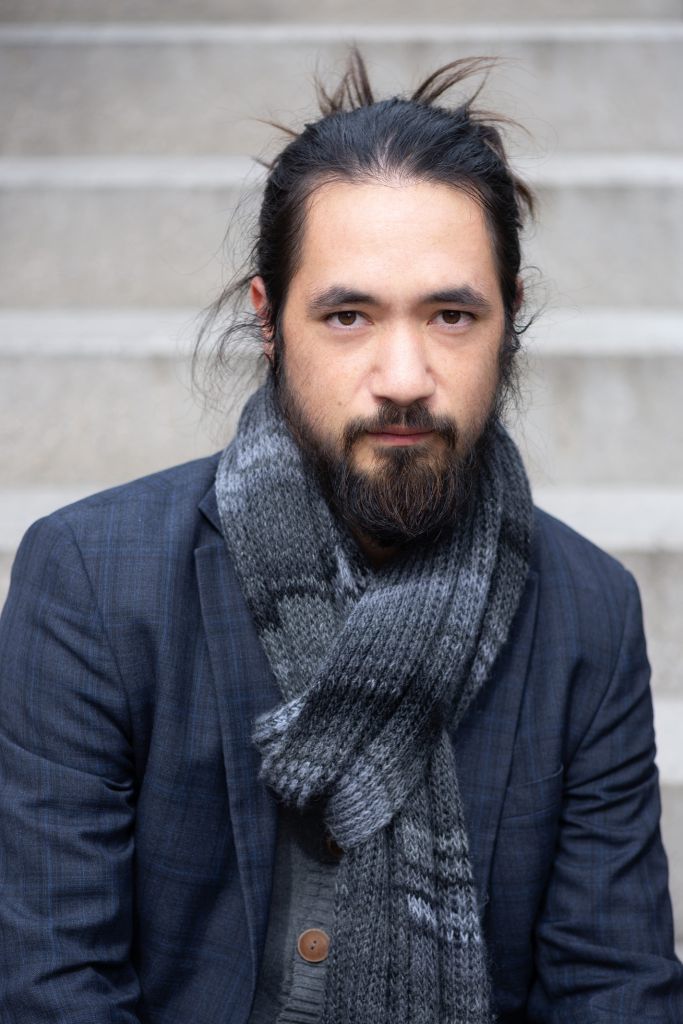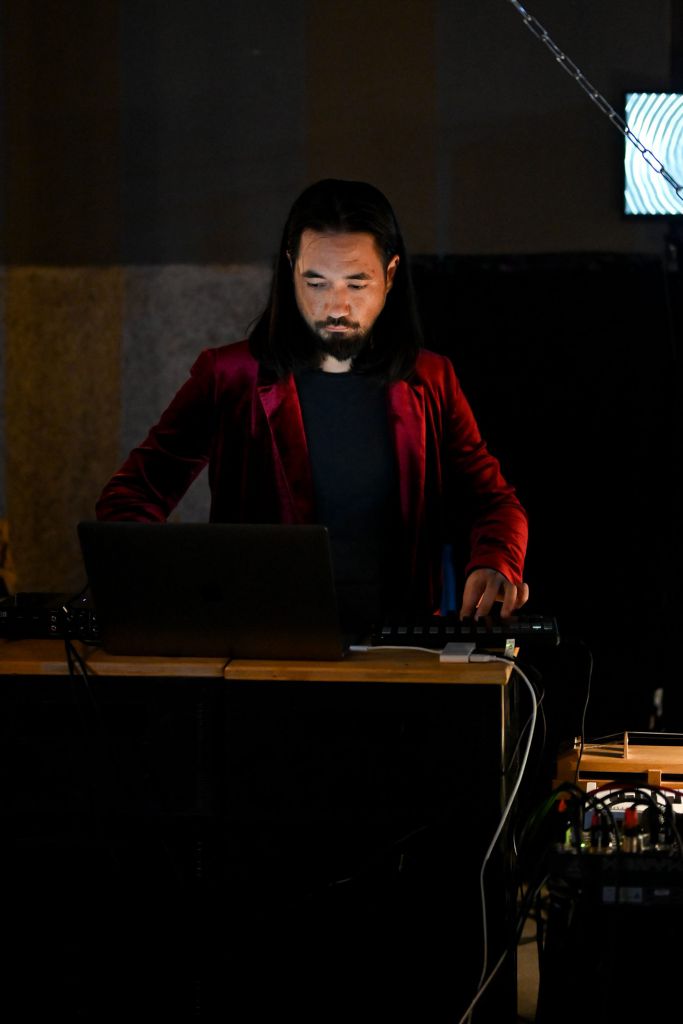Art and science are two areas that have fascinated Haruki Noda ever since his childhood years, which included a huge dose of the natural sciences and an early musical start in the form of guitar lessons. It’s precisely this duality that one can so keenly sense in his present-day work as a composer, multimedia and performance artist, and musicologist.
I’m passionate about composing, and I program my own digital instruments for use in my works.
Haruki Noda began his student career with studies in classical guitar at the Cologne University of Music and Dance before transferring to the mdw to study composition, electroacoustic composition, and music theory. “I didn’t feel able to express myself like I wanted to on the guitar, which is why I chose to pursue composing.” He’s since done so to great success, with his works having already been performed at festivals including Wien Modern (2020), the Transparent Sound New Music Festival in Budapest (2021), and the Gustav Mahler Music Weeks (2023).

“I’m passionate about composing, and I program my own digital instruments for use in my works.” With his electronic creations, he appears publicly as a multimedia and performance artist and as a member of his artists’ collective ExMachinisMusicae. “The collective arose as a COVID-era project together with my friend and fellow student Alejandro Lopez Alvarez. Back then, we were both having fun doing a lot of experimenting with digital effects units.” Today, this formation is rounded out by a visual artist as well as various other ad hoc artistic collaborators. Their first album, created in Vienna during a residency at Das.Lot in August 2023, arose from collaboration with altogether ten musicians hailing from various areas including contemporary music, experimental electronics, free improvisation, jazz, drone, noise, and techno.
As a researcher, I work in a way that’s very systematic and methodical. As an artist, I can really let loose. So these two areas of work balance each other out.
Haruki Noda has likewise continued pursuing his second passion, that of academic research. Since 2021, he’s held a position at the Center for Research on Arnold Schönberg and the Viennese School while also working on his doctorate at the Department of Musicology and Performance Studies. “It’s important to me to separate these two areas, the artistic and the academic, clearly from each other. As a researcher, I work in a way that’s very systematic and methodical. As an artist, I can really let loose. So these two areas of work balance each other out.” Despite this clear separation, however, there is interplay between the artistic and the academic—like in how the deep study of Arnold Schönberg he’s engaging in for his dissertation influences his own aesthetics. “What fascinates me about his style of composing is its radical and revolutionary aspects. As a researcher, I’m interested in the historical and political context that Schönberg and the Second Viennese School inhabited and in how they managed to establish themselves in music history.” With his dissertation theme Sich in die Geschichte einschreiben [Writing Oneself into Music History], Noda investigates just why certain composers appear in music history texts while others recede into obscurity. It’s a theme that this dedicated musicologist intends to continue working on after his dissertation is finished.

“Schönberg and the Second Viennese School had a huge influence on later generations of composers—and that’s an important topic to this day, not only in the contemporary music scene but also in other genres such as popular music.” Which is why this coming autumn, the Arnold Schönberg Center will host the international symposium “Digging Schönberg – Approaches in Popular Musics”, which will focus on the ways in which popular music has reacted to and adapted Schönberg’s output and methods.
What fascinates me about Schönberg’s style of composing is its radical and revolutionary aspects.
In the future, as well, this versatile artist is looking to remain anchored in both art and research. Live concerts with his artists’ collective are just as much part of the plan as is a trip to Canada for performances of two of his works plus “a workshop where residents of the region will join me in creating a work of art.” Over the course of 2024, Haruki Noda will also be working with support from a Career Center project grant to expand his music theatre project Ecce Homo—which was already performed as a pilot project at the mdw’s Sound Theatre in June 2023—into an evening-length piece. “An actress I’m friends with selected the text for which I’ve created a sonic frame using live electronics.” The project thus revolves around an autobiographical text by Friedrich Nietzsche and is being realised in collaboration with artists from various fields such as acting, music, fashion, and digital art. “To me, personally, it’s important to work on projects that I find fun and to focus on more than just success. And so far, that’s gone pretty well.”
Further information:
-
on the Music theater project Ecce Homo
- Digging Schönberg – Approaches in Popular Musics, International conference at the Arnold Schönberg Center, 06.-08.11.2024

